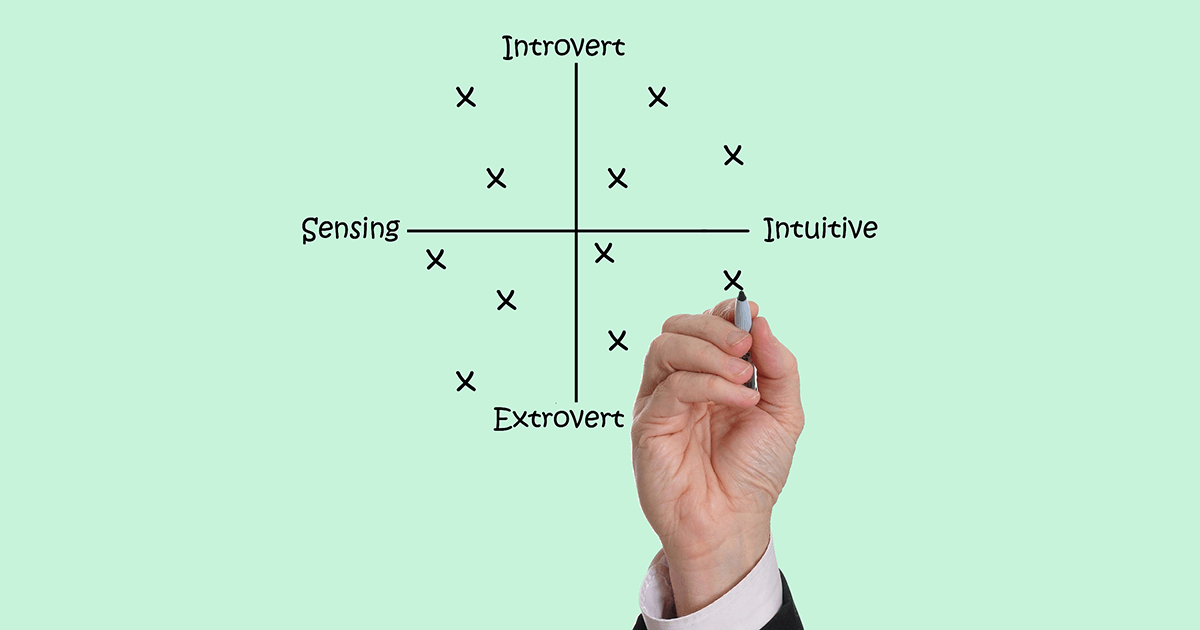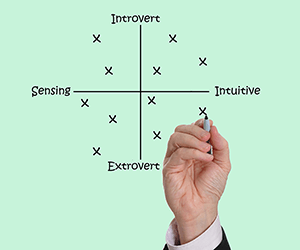College sports has its Big Ten conference, but have you heard about the Big Five? That’s knowledge you’ll find off the playing field, most commonly in a School of Psychology.
The Big Five is one of several popular personality assessments that mental health practitioners, businesses, educational counselors, and others use to gain insights into human behavior. When you earn a psychology degree online, your curriculum may include a course like the Psychology of Personality, in which you’ll explore major theories of personality and personality assessment tools. Here’s a look at three popular personality assessments:
The Big Five
This assessment tool measures a spectrum of broad personality traits. These traits are:1
- Openness (intellectual curiosity and creative imagination)
- Conscientiousness (organization, productiveness, responsibility)
- Extraversion (sociability, assertiveness)
- Agreeableness (compassion, respectfulness, trust in others)
- Neuroticism (tendencies toward anxiety and depression)
In this assessment, you respond to a series of statements by choosing one of five options indicating how strongly you agree or disagree. A sample statement is, “I am relaxed most of the time.” You would select one of the following: strongly disagree, slightly disagree, neutral or cannot decide, slightly agree, or strongly agree. (Wording may vary.)
There are no right or wrong answers, and you get a score for each of the traits. The results can help each of us—and the professionals administering the assessments—to better understand our behaviors and motivations.
Minnesota Multiphasic Personality Inventory (MMPI)
This personality assessment is mostly used by mental health practitioners to help assess and diagnose psychiatric conditions. It’s also used in career counseling and marriage and family counseling, and as an employment screening tool for jobs like pilot, air traffic controller, police officer, and firefighter.2
There are several versions of this personality inventory, which the University of Minnesota first published in 1940.3 According to the American Psychological Association (APA), “The version currently in use, the MMPI–2 (1989), features 567 true-false questions that assess symptoms, attitudes, and beliefs that relate to emotional and behavioral problems, including substantial revisions of the original items and the addition of new scales.”3
While you may be able to find and complete some personality assessments on your own online, the MMPI is a “protected psychological test,” not generally available to non-credentialed individuals.2
Myers-Briggs Type Indicator (MBTI)
Used mainly in business and educational counseling,4 this personality assessment assigns each individual a psychological “type” based on a combination of these four traits: Extraversion (E) or Introversion (I), Sensing (S) or Intuiting (N), Thinking (T) or Feeling (F), and Judging (J) or Perceiving (P). There are 16 possible types—ENTJ or ISFP, for example.
According to the Myers & Briggs Foundation, “The theory of psychological type was introduced in the 1920s by Carl G. Jung. The MBTI tool was developed in the 1940s by Isabel Briggs Myers and the original research was done in the 1940s and ’50s. … Millions of people worldwide have taken the indicator each year since its first publication in 1962.”5
Learn More by Earning an MS in Psychology Online
Earning a master’s degree in psychology can help prepare you to better understand human behavior and make a contribution in fields that include psychology, education, healthcare, and social work.
Walden University, a leader in remote learning for more than 50 years, offers an online MS in Psychology degree program that can help prepare you for a career working in schools and community colleges, healthcare and social service agencies, nonprofit organizations, government agencies, and more.
The online master’s degree in psychology program offers a general program and multiple specializations that let you tailor your studies to your career goals. Step into the vanguard by studying Digital Psychology, learning how technology affects human behavior. Study cognition and life span development in the Educational Psychology specialization.
Walden’s master’s degree in psychology online degree program also offers an Applied Behavior Analysis (ABA) specialization. This evidence-based therapy often is especially beneficial for children and adults on the autism spectrum.
Walden’s online psychology master’s program is designed for working professionals who want to earn a degree while continuing to work and enjoy family life. The HLC-accredited university’s flexible online learning platform lets you study on your own schedule, wherever you have an internet connection.
With your life experience and thirst for knowledge, look to Walden to find the online degree program that prepares you to step into your chosen career in psychology and make a difference through your life’s work.
Walden University is an HLC-accredited institution offering an online MS in Psychology degree program with multiple specializations to help you meet your professional goals. Expand your career options and earn your degree in a convenient, flexible format that fits your busy life.
1Source: www.psychologytoday.com/us/basics/big-5-personality-traits
2Source: https://psychcentral.com/lib/minnesota-multiphasic-personality-inventory-mmpi#what-is-the-mmpi
3Source: https://dictionary.apa.org/minnesota-multiphasic-personality-inventory
4Source: https://dictionary.apa.org/myers-briggs-type-indicator
5Source: www.myersbriggs.org/my-mbti-personality-type/mbti-basics/
Walden University is accredited by The Higher Learning Commission, www.hlcommission.org.





